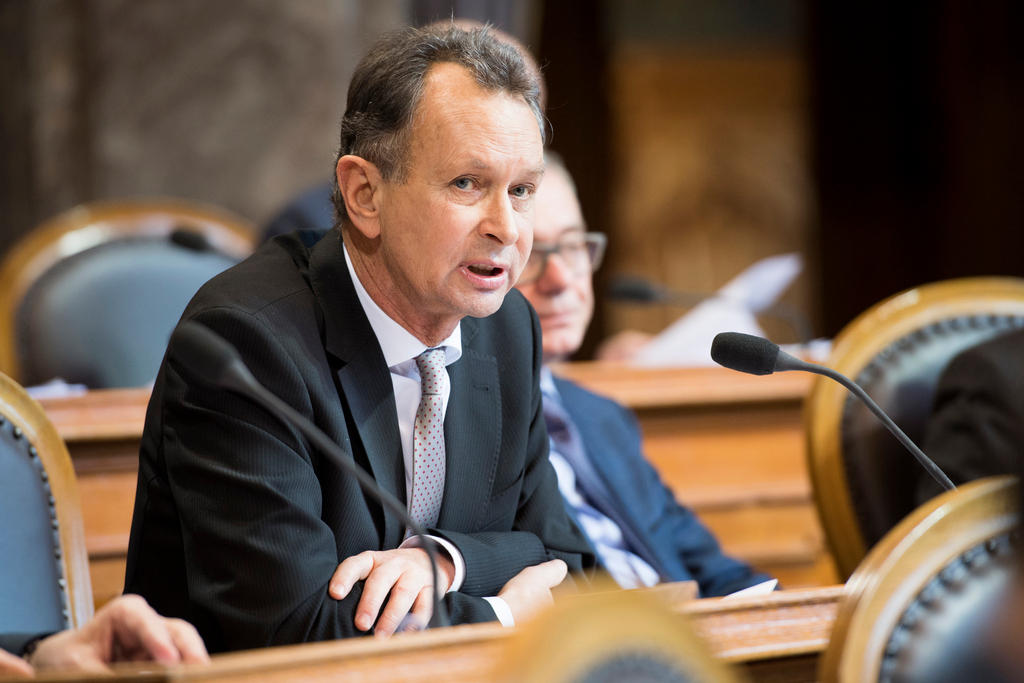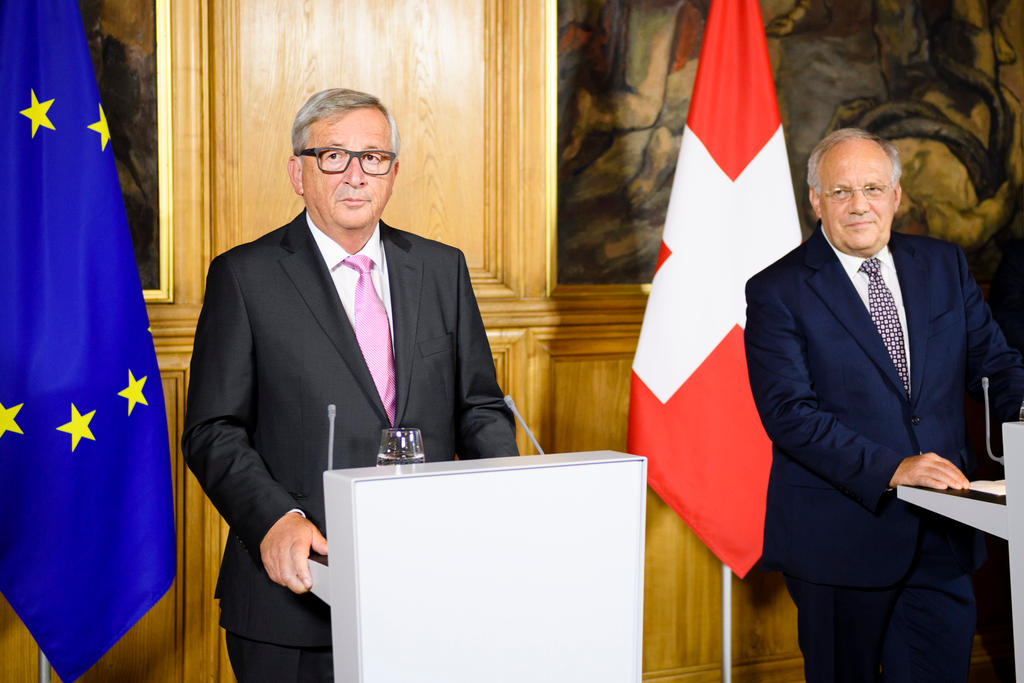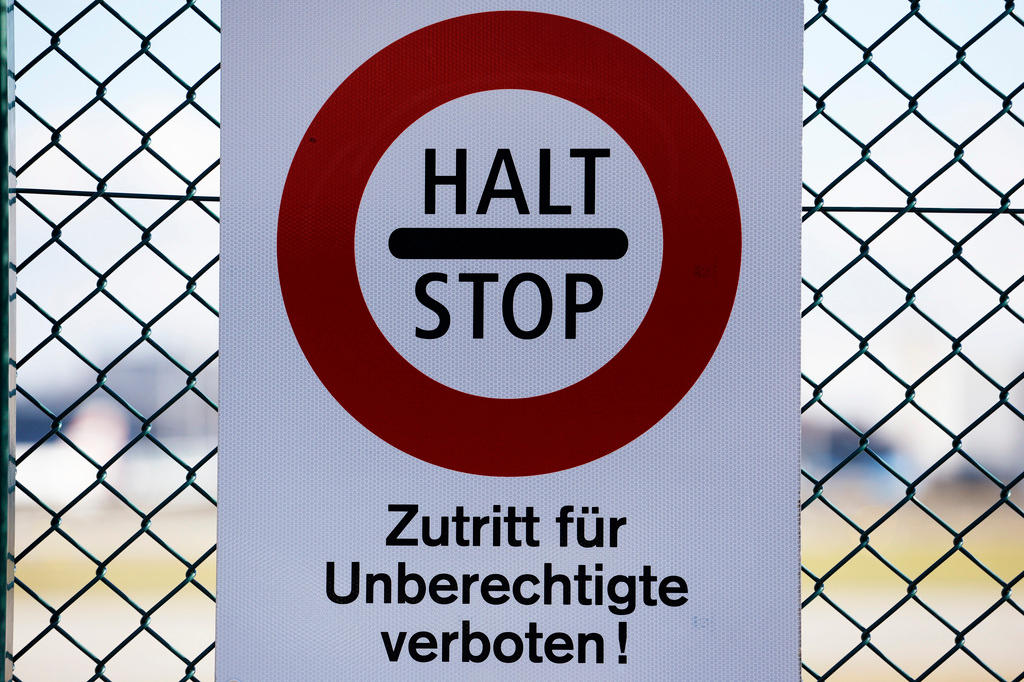Swiss extend free movement to Croatia after immigration vote

The Swiss government has extended the free movement of people agreement to Croatia following parliament's approval of a law on European Union immigration and jobs.
Parliament had green-lighted the Croatia extension last year on the condition that it found a way to solve an impasse with the EU over a February 2014 vote to limit immigrants from the 28-nation bloc.
Earlier on Friday, parliament approved a revision of that immigration law which avoids quotas on EU immigrants but instead prioritises Swiss job seekers. The Senate passed the measure with 24 in favour and five against, while the House passed it 98 votes to 67 with 33 abstentions.
In the end, the parliamentary majority voted to focus on prioritising jobs instead of quotas in order to avoid a conflict with the EU that many feared could end with the cancellation of bilateral accords governing areas from trade to research funding.
The EU-wide Horizon 2020 research programme, of which Switzerland was a part until the February 2014 vote, altered the Swiss status to that of a “third country” with fewer privileges.
The EU had agreed that Switzerland would be returned to full participation in the research programme in 2017 if they ratified Croatia’s participation in free movement by February 9. Therefore, Friday’s decision by the government paves the way for full Swiss participation in Horizon 2020 beginning on January 1 of next year.
Swiss President Johann Schneider-Ammann told reporters that he was relieved and satisfied that parliament had found a solution to reintegrate Swiss researchers into the ‘scientific Champions’ League’, which meant jobs would be preserved.
Martin Vetterli, the new president of the Federal Institute of Technology in Lausanne (EPFL), also said he was delighted and ‘hugely relieved’ at the news.
“This is excellent news for Swiss scientific community,” he said. “The most important thing is that Swiss science is seen as an open place where we welcome the world’s best researchers.”
For their part, the Union of Students of Switzerland saidExternal link it now hoped that the same commitment would be applied by the government to finding a solution to the Erasmus+ exchange programme for students. The EU had also frozen Switzerland out of this programme, and there is currently an interim solution in place to allow Swiss students to take part until the end of 2017.
What’s in the immigration law?
The immigration legislation passed by parliament on Friday contains measures to prioritize Swiss job-seekers over those from EU countries, such as requiring employers to post vacant positions at local unemployment offices before advertising them elsewhere. The penalty for not doing so can be up to CHF40,000 ($38,900). Employers must also invite candidates who meet their criteria and who are registered at the unemployment office for an interview.
Employers must then communicate their final hiring decision to the unemployment office.
The new measures will be restricted to parts of Switzerland and job sectors with unemployment rates higher than the average, currently at 3.3%. The map below shows current unemployment rates in all of the Swiss cantons.
In addition, border regions such as Ticino and the area near Geneva will be able to appeal to the cabinet for exceptions to the law that may complicate the situation for the more than 300,000 cross-border workers who come into Switzerland from neighbouring countries every day.
People’s Party cries foul
Members of the conservative right Swiss People’s Party, which had proposed the February 2014 referendum on quotas, argued up until the final vote that the latest parliamentary proposal violates the Constitution because it does not contain quotas and therefore fails to apply the will of the people.
People’s Party parliamentarians waved signs in parliament stating, “Breach of the constitution” and “Mass immigration continues”.
The People’s Party has said that if cabinet does not intervene by February 9 with a version of the law conforming to the 2014 initiative, it will launch a new initiative “as soon as possible” to dissolve the bilateral accord with the European Union concerning the free movement of people.
Close to 1.4 million EU citizens live in Switzerland, over 300,000 commute in from neighbouring countries, and more than 450,000 Swiss citizens currently reside in EU countries.
Initial EU reactions positive
Following the Swiss parliamentary process, the focus now shifts to how the EU responds in particular to the question of whether the revised law violates the free movement of people – the principle underpinning Swiss access to the EU’s single market of 500 million.
On Friday, Margaritis Schinas, a spokesperson for the European Commission, said the law “seems to go in the right direction” and that “it is a good sign that the law no longer aims to introduce quotas on free movement of EU citizens and does not intend to restrict their access to work in Switzerland “.
In the afternoon, Schneider-Ammann talked on the phone with European Commission President Jean-Claude Juncker, who welcomed parliament’s decision.
Juncker said it meant a return of bilateral relations to a ‘situation that can be described as normal’.
Brussels must still consult with member states at the beginning of next week before giving an official response; an EU-Swiss committee meeting is planned for December 22.

In compliance with the JTI standards
More: SWI swissinfo.ch certified by the Journalism Trust Initiative











You can find an overview of ongoing debates with our journalists here . Please join us!
If you want to start a conversation about a topic raised in this article or want to report factual errors, email us at english@swissinfo.ch.